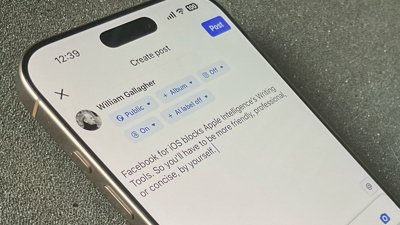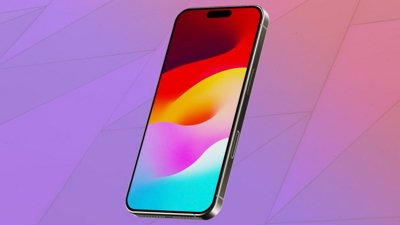In a statement issued on Monday, U.S. Senator Tom Cotton, a Republican from Arkansas, criticized Tim Cook for his defense of strong encryption during a 60 Minutes interview, claiming that the Apple CEO had "omitted critical facts."
"As a society, we don't allow phone companies to design their systems to avoid lawful, court-ordered searches," Cotton said in the statement. "If we apply a different legal standard to companies like Apple, Google, and Facebook, we can expect them to become the preferred messaging services of child pornographers, drug traffickers, and terrorists alike — which neither these companies nor law enforcement want."
During the 60 Minutes piece, Cook argued against government-mandated backdoors in encryption. The executive maintained a long-held position that if Apple coded deliberate holes for U.S. law enforcement and spy agencies, those holes could also be exploited by malicious hackers, including governments wanting to use the Internet against their own citizens.
Apple and other corporations have come under increasing fire from U.S. government officials concerned they will no longer be able to intercept communications from criminals or terrorists. The encryption present in iOS 8 and 9, for instance, is so strong that Apple says it can't break it, even when served with a warrant.
One of the most vocal critics of Apple's policy has been FBI director James Comey. His efforts suffered a setback when the Obama administration decided not to force decryption, although during an October hearing, Comey said that talks with corporations had become "increasingly productive" and less venomous.
 Roger Fingas
Roger Fingas


 William Gallagher
William Gallagher

 Andrew O'Hara
Andrew O'Hara
 Wesley Hilliard
Wesley Hilliard

 Malcolm Owen
Malcolm Owen
 Marko Zivkovic
Marko Zivkovic





-m.jpg)




101 Comments
this guys is dangerous. For those who have forgotten, he essentially committed treason by co-authoring the letter telling Iran that any deal they struck with President would be reversed by congress as soon Obama leaves office.
His argument, obviously, is spurious although not unexpected. That it is technically possible for phone companies to implement intercepts is not as a result of a legal requirement. And there is nothing illegal about providing end-to-end encryption technology to customers - if there were then this argument would not even be taking place.
Hmmm who should I trust?
Apple, a company who has not done any wrong by me and has only served to make my life just that little bit easier?
How about the government who wants the ability to have a back door into my system in the off chance I might decide to commit a crime therefore see me as nothing more than a potential criminal meanwhile employing policies that allow them to basically not fix the real issues, not look after the people they are in charge of looking after, and getting rich from what by dictionary definition amounts to bribes?
I worked in the IT Department in the New Zealand Parliament for about 4 months. Frankly that solidified my belief that I shouldn't vote for any government because they are worse than Kindergarten children. Parliament is the scariest place on earth because you quickly realise that those muppets are the ones running the country.
Nope, I'm on Apple's side here people.